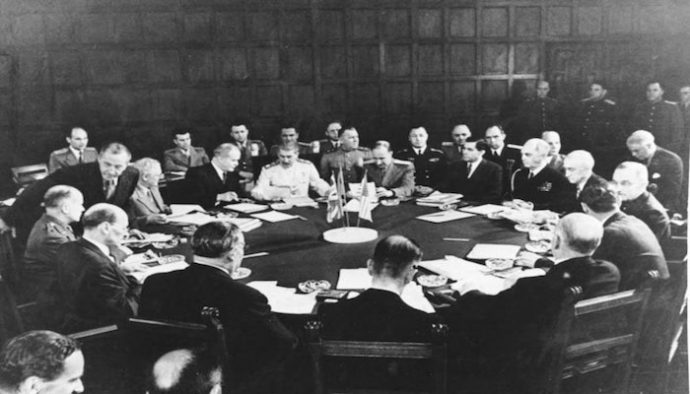Clarity and context are important. In 1945, Winston Churchill, Harry Truman, and Joseph Stalin had emerged victorious in Europe as the leaders of the Allied Powers in World War II. Now they were going to meet in Potsdam, Germany to negotiate the terms for the end of that war. They hoped to avoid a land invasion of Japan since they knew the loss of life that was bound to follow.
Initially, the Japanese government said nothing while they considered their options. But eventually, when reporters hounded Prime Minister Kantaro Suzuki for an answer, he uttered a single word, “mokusatsu.”
This choice of words is probably one of the most tragic decisions ever made – not because of the word, but because that single word can be interpreted in multiple ways. What the Prime Minister meant was “no comment.” Unfortunately, the word was translated to the Allies as meaning “not worthy of comment; held in silent contempt.” The Allies, and particularly the US, were sick and tired of Japan’s “kamakazi” spirit. They took the word as an insult of the highest order and a rejection of their demands for peaceful surrender. Less than a month later, the atomic bomb was dropped on Hiroshima. Linguists have called the incident the world’s most tragic translation.
Clarity and context are indeed important. This was not the first time, nor even the most significant time when a failure to truly understand with clarity and believe words had devastating results. A long time before the Potsdam Conference, there was another meeting – not in a city, but in a garden. And in that case, too, there was a failure to understand with clarity and believe the word that had been given. At that meeting, the serpent called into question the Word of God:
“Did God really say…” he said to the woman.
Those four words still haunt us today. They haunt us not only because of the devastating effects that came afterward, but because those same four words are at the core of every temptation, social evil, and moral compromise we still face:
- “Did God really say not to worry?”
- “Did God really say He would provide for you?”
- “Did God really say that judgment would come to all people?”
And we can still take it further:
- “Did God really say that there were male and female?”
- “Did God really say that all life is precious, even in the womb?”
- “Did God really say that Jesus is the only way to the Father?”
Sadly, many Christians are ill equipped to answer the challenge of that question. For how can we expect to counter the question, “Did God really say…” if we truly don’t know all of what God has already said?
That can’t be true, can it? I mean, Christians believe the Bible is true. They own Bibles. They read Bibles. Don’t they? Perhaps they do in part, and yet there remains an epidemic of biblical illiteracy in our churches in which we might know a few verses and yet do not understand with vivid clarity the truth from the entire counsel of God. It seems that we, as Christians, have the tendency to treat the Bible like a cafeteria buffet, picking and choosing the most appetizing parts and leaving everything else on the shelf. This points to the fact that biblical illiteracy is not some distant issue for everyone else; it’s a problem in our own homes and in our own churches that, if left unchecked, will cause us to have an incomplete and misshapen view of God, ourselves, and the world.
As AW Tozer once said, “Nothing less than a whole Bible can make a whole Christian.”Clarity and context matter. If we are to be the people of the Word, then we must be the people of the whole Word. Those that know what God has said, so that we might know what God is saying.
Subscribe to MichaelKelley.co
Never miss a new post. Subscribe to receive these posts in your inbox and to receive information about new discipleship resources.





1 Comment